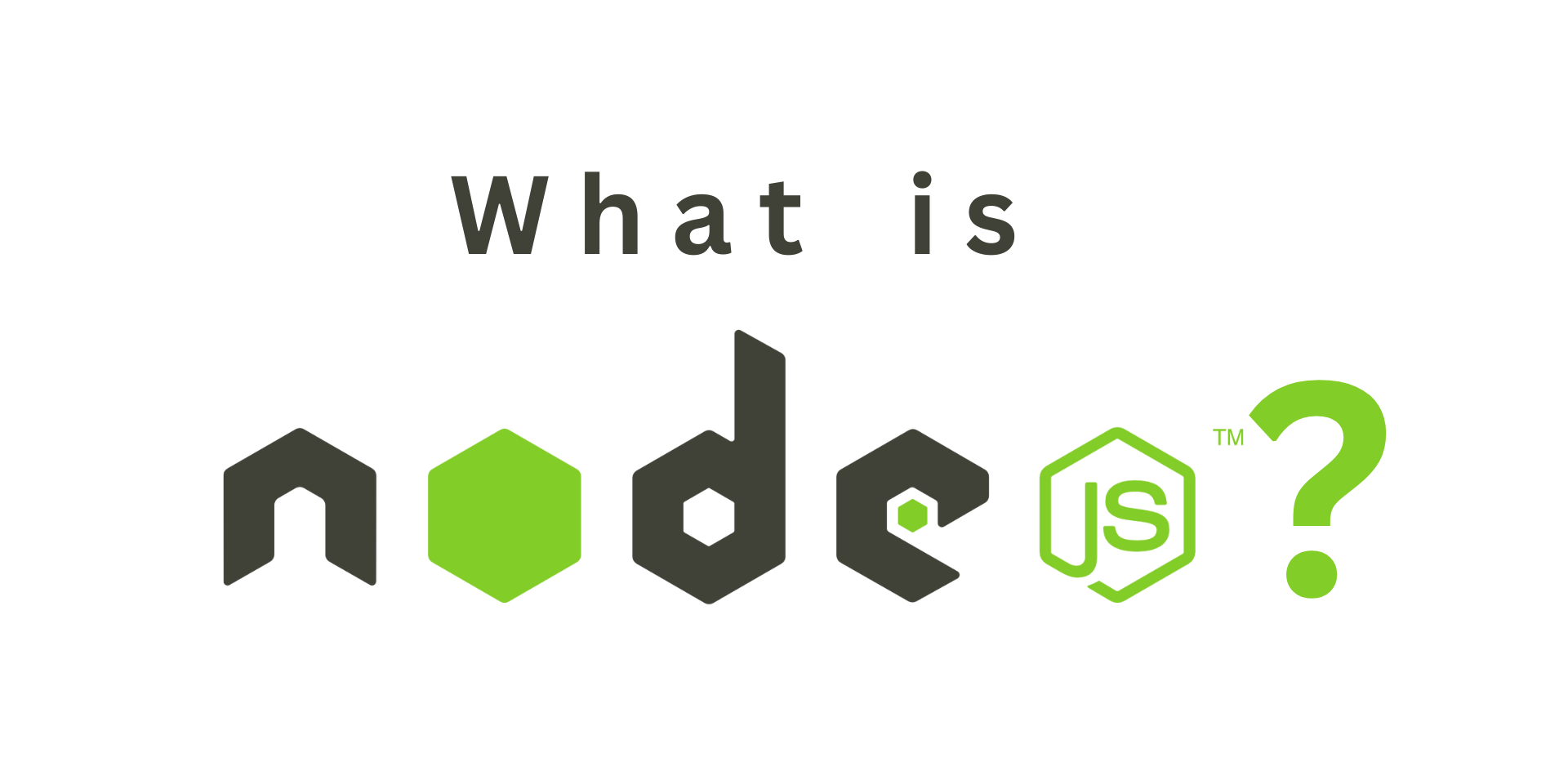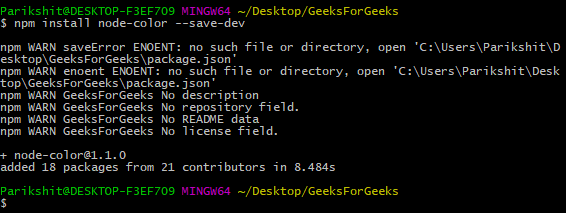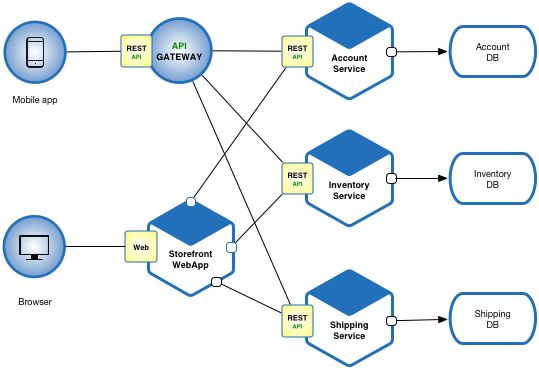Node.js development has definitely made it easier and more effective for organizations to build powerful applications. It has allowed developers and companies to work with cutting-edge technology for building applications to streamline specific activities.
If you are planning to avail yourself of node.js development services, make sure you know the technology and its components well. This helps you stay abreast with the project and be in sync with every phase of your software development.
It is also important to know why and when you should consider building a node.js application to drive maximum utility out of the same. However, before that, let us understand the technology and how it works.
So, what is node.js?
What Is Node.js?

Node.js is an open-source and cross-platform runtime environment as well as a library that helps you run web applications outside the browser of a client. It was developed by Ryan Dahl in 2009 after seeing the progress bar for a file being uploaded and not being satisfied with the available solutions for building web applications. This motivated him to create a lightweight environment that is easy to use.
Before you seek node.js development services, it is important to note that node.js is not a programming language. It is not a development framework as well. Node.js is a runtime environment, which is essentially a collection of web APIs used by a developer to build a code and a JavaScript engine for parsing that code. This makes node.js versatile, lightweight, and simple to deploy. This is one of the key reasons why developers choose node.js for building powerful web applications.
How Does Node.js Work?
The importance and functionality of node.js can be understood with a simple example. Let’s say you visit your favorite restaurant with only one individual handling all orders. If there are no customers in the restaurant, your order will be served to you with no delays or interruptions. On the other hand, if the restaurant is fully occupied with only one person to manage all the orders, you are likely to receive your order late.
In the example used above, the issue can be resolved by employing more staff members at the restaurant. This is precisely how node.js handles events in building an application. Being an event-driven system, node.js contains a server made of a single thread responsible for processing one event after another. Going back to the example, we can think of every new thread as a new employee added to the restaurant to handle the orders. The browsers here represent the crowd occupying all seats at the restaurant.
Whenever node.js receives a new request, it allocates a dedicated thread to it. Therefore, in the event of a blocking IO operation, the server initiatives processing the thread and registers a callback function instead of waiting for its completion. The server then moves on to the next event and request.
The node.js server will continue working on a request as the IO request is completed with a callback action when it finds time. This is why it needs to launch new threads or switch between multiple threads, leading to reduced overhead.
Now, let us move on to the core question: why should you consider node.js development?
Why Should You Consider Node.js Development?
If you are still on the fence regarding the technology you should choose to build your application, here are a few important reasons why you should choose node.js development:
Seamless Language Sharing

Node.js allows JavaScript to be used for both front-end and back-end development. This makes the programming language consistent throughout the node.js application. Not all runtime environments follow the language-sharing approach and use different languages for front-end and back-end development.
While using node.js, developers can exchange code between server and client applications while using JavaScript throughout the process. This improves communication between front-end and back-end teams working on your project. Node.js also makes full-stack development simpler and more powerful as doesn’t require you to look for an engineer proficient in multiple programming languages.
Quick Development
Node.js is known for its quick and no-nonsense development. JavaScript is simpler to learn than most programming languages, making node.js development easier for beginners and experts. You can expect almost every front-end developer to know JavaScript, making the learning curve short as you switch from front-end to full-stack development.
With node.js, getting started with your software development project becomes extremely easy. You can set up the servers quickly with the simple “Hello World” API being up and running in no time. The runtime environment is also an ideal choice for developers and companies building microservice environments. As it is simple to create an API in node.js, linking APIs together does not take much time.
Node.js is also a good choice to create prototyping architectures and solutions due to its quick experimentation. Once you are deep into the software development lifecycle, node.js lets you switch between static and dynamic typing according to your convenience. This gives you considerable freedom regarding how the different components within your system are built.
Node Package Manager (NPM)
Node Package Manager (NPM) is one of the most noteworthy features and biggest advantages of building a node.js application. It lets you download and use code packages given by other developers for your own software development projects. This prevents node.js developers from building code from scratch, saving them considerable time and effort.

Node.js hosts the largest software library registry across the globe. It consists of more than 1.2 million packages in its main registry, all of them being created by the vast node.js community. This makes it easy for developers to find solutions to the problems they may encounter as they build their applications.
Moreover, Node Package Manager simplifies the management of application dependencies by installing not only the code of the library but all its dependents as well. When NPM is combined with Git-Hib (the largest code depository in the world), it gives you access to code capable of solving a range of different problems.
Single-threaded Event Loop Architecture
Another reason for the popularity of node.js in the global IT sector is its single-threaded event loop architecture, making it an ideal choice for building microservices. When you start a node.js application, an event loop is initialized and a single instruction is executed at a time.
This provides developers and organizations with several benefits, the biggest being simplified development. As node.js developers do not need to be bothered about managing different threads, development becomes easier. It also improves the performance of your application by processing more requests simultaneously than most other architectures.
Node.js’s architecture also lets you build scalable apps and services by allowing you to scale down individual parts of your application without affecting the whole system. Companies willing to build real-time chatbots and other relevant applications that require immediate output often resort to node.js.
Native AWS Support
All web applications require a reliable host, and Amazon Web Services (AWS) has proven itself to be one of the most trusted hosts worldwide. AWS provides native support to node.js and is closely integrated with the runtime environment.
Cloud9 is a popular Amazon integrated development environment (IDE) compatible with node.js. Along with having the lowest entry barriers to building a scalable microservice, it allows node.js developers to write and change codes in their browsers. Along with the Cloud9 IDE, node.js can also be used with the internet of things (IoT) SDK of Amazon as well as the AWS Cloud Development kit for JavaScript. The SDK also supports TypeScript, further allowing node.js developers to explore new horizons while building robust web applications.
When Should You Choose Node.js Development?
Along with knowing why node.js is important for building web applications, it is equally important to understand the circumstances that call for such development. Here are a few prominent purposes for seeking node.js development services:
Building Data Streaming Applications
Streaming giants like Netflix use node.js for building and running their web applications. Node.js’s built-in stream module for a web application lets developers process large volumes of data into smaller packages, facilitating the development of robust and dynamic streaming applications.
Creating Microservices

As node.js allows developers to do more with less code, it becomes an ideal technology for building scalable microservices. Most companies prefer working with node.js to build microservices as it extracts a good chunk of your essential system, making microservice development simple and effective.
Building IoT Applications
MQTT is a popular publish-subscribe-based messaging protocol used in IoT (internet of things) apps. This protocol makes use of WebSockets for seamless encapsulation and transportation. Both WebSockets and MQTT easily and readily work with node.js for building powerful IoT applications. Over time, node.js has emerged as one of the most trusted technologies for building IoT apps because of its capacity to work effectively with readable channels and streams.
The Final Word
These were some of the most critical reasons why you should consider building web applications using node.js. If you are planning to build a powerful web application according to the specific requirements of the end-users, make sure you team up with a competent node.js development company such as Intellisource that brings you closer to your inherent goals.

